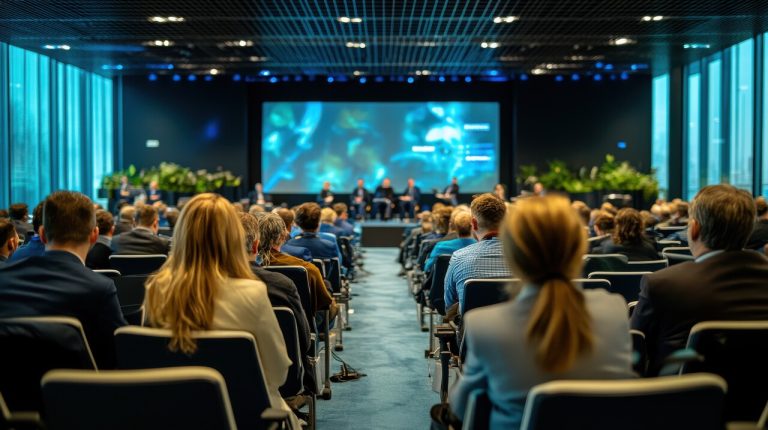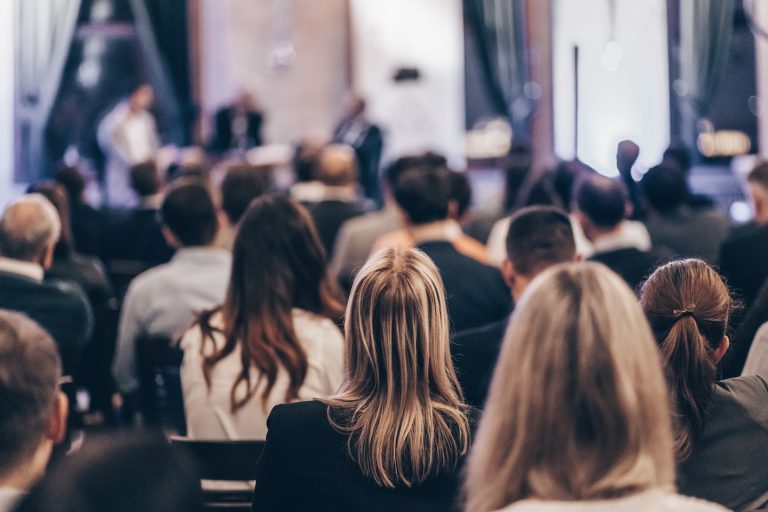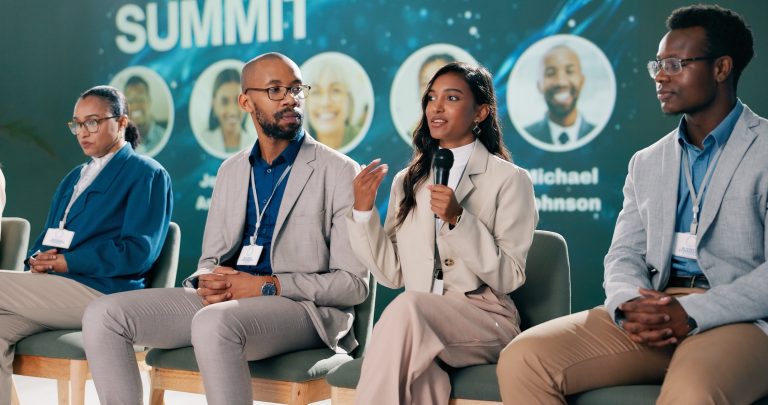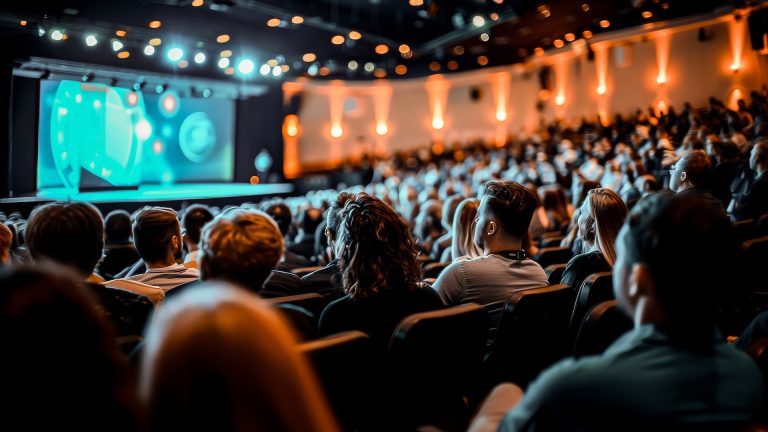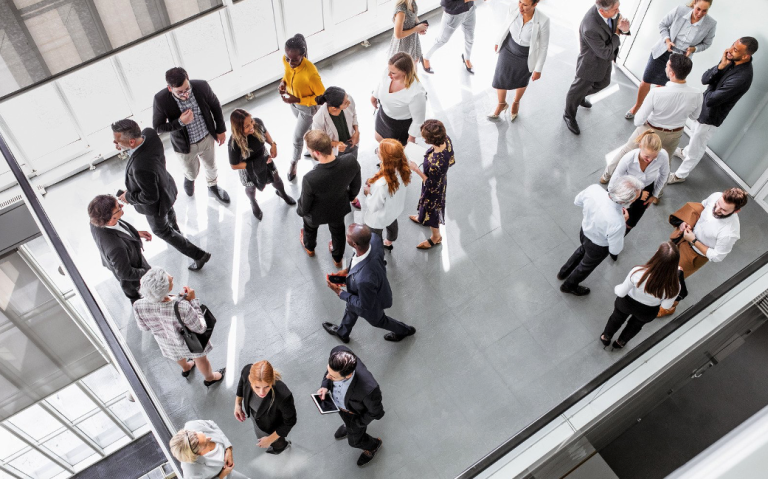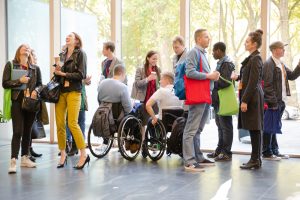
We’ve all heard it before: “This event wasn’t fully accessible.” But do we truly understand what accessibility means?
For many, accessibility first brings to mind physical features—ramps, elevators, or restrooms adapted for mobility impairments. These are essential features, especially for people who use wheelchairs or have limited mobility. But accessibility goes far beyond physical structures.
Based on EIC Futures Landscape Report 2025, accessibility is one of the top forces shaping the future of the business events industry.
True accessibility means creating equal opportunities for participation, comfort, and dignity—regardless of physical, sensory, cognitive, or cultural differences. And often, the most significant barriers are the ones we can’t see.
When organising events, we have a responsibility to design them inclusive, diverse, and welcoming. Accessibility isn’t just about compliance—it’s about creating spaces where everyone can fully engage, contribute, and thrive.
More Than a One-Time Effort
At Kenes Group, accessibility is not just a moral or legal obligation. It’s an essential part of our strategy and day-to-day planning. We include accessibility in every stage of event development—through team collaboration, client dialogue, delegate feedback, and supplier partnerships.
It’s an ongoing journey of listening, adapting, and evolving to ensure equitable experiences for all. Our approach covers several key areas:
Physical Accessibility
We ensure that attendees with physical disabilities can navigate our venues comfortably and safely. This includes:
- Step-free access and ramps where needed
- Elevators with braille buttons and audio announcements
- Accessible restrooms, wide doorways, and adapted catering/registration areas
- Reserved seating and accessible hotel options
- On-site staff assistance and accessible transportation
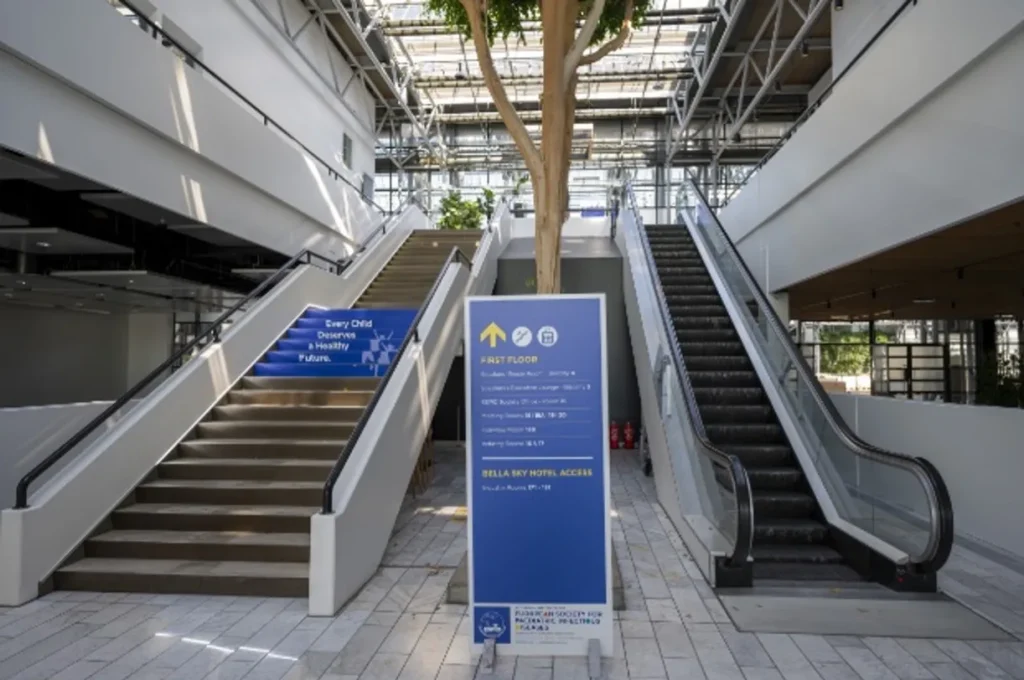
Cognitive Accessibility
We aim to make our content and communication clear and easy to understand, especially for attendees with cognitive disabilities. Our initiatives include:
- On-site staff and volunteers trained to provide support
- Recorded sessions and post-event content access
- Consistent signage, visual infographics, quiet rooms, and large-print maps
- Colour-coded digital programmes for easier navigation
Communicative Accessibility
We provide tools to support people with hearing, speech, vision, and language-related disabilities, as well as non-native language speakers. Our efforts include:
- Clear pre-event communication and speaker guidelines
- Live captions and translation services (as needed)
- Sign language interpretation
- Noise-cancelling headphones in loud areas
- Communication support via event app
- AI-generated summaries to help attendees process sessions in real-time
Cultural Accessibility
Accessibility also means cultural inclusivity. We aim to accommodate diverse linguistic and religious backgrounds:
- Event scheduling respectful of religious holidays
- Inclusion of diverse speakers and advisory board members
- Prayer rooms for all faiths
- Multilingual communications and live translations
- Dietary accommodations (halal, kosher, vegetarian, allergy-friendly)
- Using inclusive language and upholding a clear, enforceable Code of Conduct
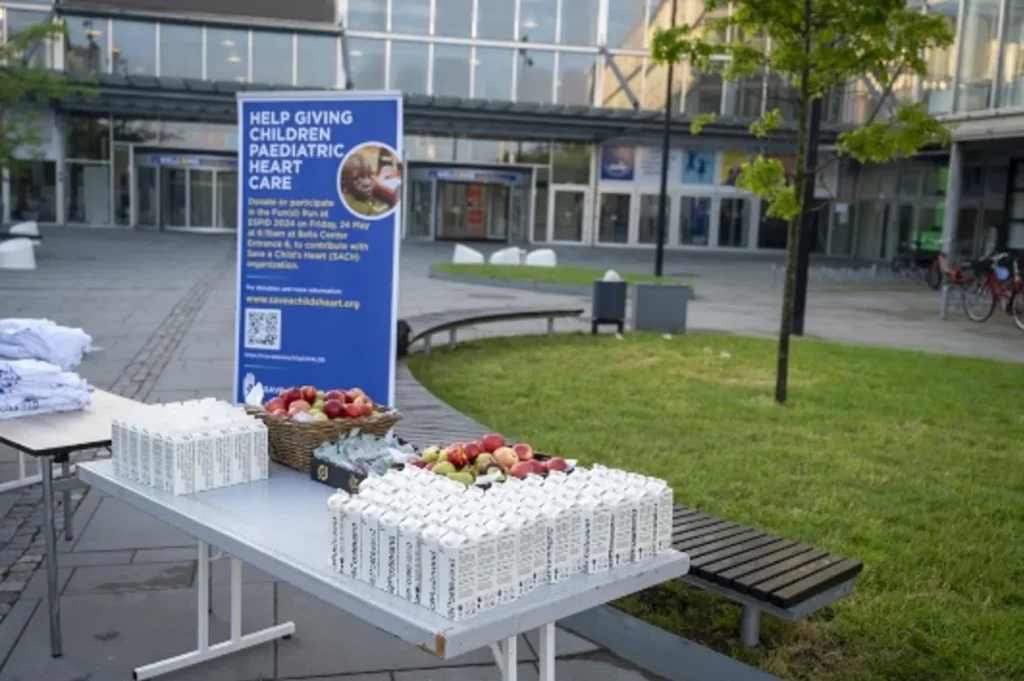
Digital Accessibility
Digital inclusion is critical, especially in hybrid and virtual formats. We ensure:
- Screen reader–compatible websites and platforms
- Adjustable font sizes and high-contrast colours on digital interfaces
- Captioned videos and live session transcription
- Seamless app and platform integration for hybrid events
- On-site staff to support with digital navigation and troubleshooting
Attitudinal Accessibility
Sometimes the biggest barriers come from attitudes. We work to foster a culture of respect, empathy, and inclusiveness:
- Staff training on disability awareness and inclusive service
- Clear non-discrimination and anti-harassment policies
- Guidelines for respectful and inclusive interactions
- Sensitivity training on addressing bias and assumptions
Economic Accessibility
At Kenes, one of our core goals is to make high-quality medical education accessible to all—regardless of financial background. We strive to eliminate economic barriers that may prevent participation, especially for those from low-income or underserved regions.
A great example is the Travel Grant programme provided at selected events, such as ISPPD-13. These grants support presenting abstract authors—with priority given to young investigators and delegates from low-income or underserved regions—covering registration, accommodation, and partial travel reimbursement, making participation merit-based and financially accessible.
Other measures include affordable virtual access, shuttle services, childcare options, and post-event content access—ensuring cost doesn’t become a barrier to learning.
Accessibility is not just physical or digital—it’s financial too. By removing economic barriers, we’re opening the door to a more diverse, inclusive and globally representative medical community.
Moving Forward
Accessibility isn’t a one-time goal; it’s a constant effort that we’re all a part of.
In the medical and scientific community, knowledge can only make an impact if it’s accessible to all. For Kenes, accessibility isn’t an add-on—it’s a core principle.
None of our efforts would be possible without active listening and continuous learning. We are committed to giving everyone the opportunity to participate, learn, and share knowledge—equally and respectfully.
In the future, accessibility optimization will improve event experience and outcome. In the next 5 years… Venues and host cities will be chosen based on their accessibility features. Expect regulations to mandate accessibility rather than treat it as an optional add-on. The range of event services (virtual, hybrid, and in-person) will also likely grow in response to accessibility initiatives.

Elena Fis holds a Sustainable Event Professional Certificate and has been a member of the EIC Sustainability and Social Impact Committee since 2024. She is also collaborating with IAPCO and became a member of IAPCO EDI and sustainability committee consulting on various initiatives and supporting Meetings and events industry in this area.
Elena been part of the Kenes Group for more than a decade. In 2023 she was promoted to Kenes Sustainability Officer and in November 2024 was named a global Sustainability Manager in the company. She had taken on a bigger task at hand: to develop Kenes Group’s internal and external sustainability policies, develop sustainability strategies for Kenes clients and PCO’s original events, support Kenes association clients, implement the processes and practices that will include gender equality, responsible consumption and production, quality education and good health and well-being.

